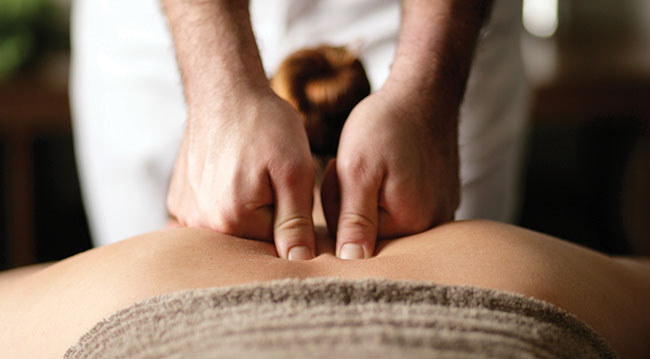
Features
Practice
Wellness
My sister’s keeper: Reciprocal care relationships translate to the greater good
September 6, 2021 By Don Quinn Dillon
 Photo: @ Peter Atkins / Adobe Stock
Photo: @ Peter Atkins / Adobe Stock I’m in a reciprocal care relationship with a massage therapist. I provide care every two weeks for her, and she for me. She approached me initially to address frequent, insistent headaches. I offered to exchange. I was looking to alleviate progressive lower body limitations afforded me from an unfortunate launch over my bicycle handlebars a decade back.
I regard our relationship as special and transformative. What began as a respectful collegial relationship deepened into a commitment of somatic support, building each other’s capacities to serve our respective patients. Her manual administrations improve my physical function, sharpen my empathy, and strengthen my resolve to manifest these outcomes in others. She admits I do this for her too…I am my sister’s keeper.
We exchange knowledge and techniques. We are open to new ideas and approaches. Professional protectionism gave way to genuine curiosity and collaboration. We might speak far too often of our impatience and frustrations with our profession, but this dialogue too is therapeutic. I count down the days until my next massage session with her – the care and comfort, the renewed liberty of movement, the relief of pain and stiffness.
During my lecture circuit, I often ask the crowd of practitioners “Have you experienced a massage therapy session for yourself recently?” Few hands would go up. Some say privately, “I wouldn’t go to anyone around here” or “I don’t have time/too busy.” A shame they don’t allow this reciprocal care experience for themselves.
I believe caregivers must accept care for themselves if they are to retain any effective capacity to care for others. A reciprocal care relationship permits you to explore, to trial, to make mistakes, to learn, to collaborate, to build competence. With time you can better recruit your sensibilities, embody and embrace being cared for.
This nurturing relationship promotes me to consider a larger and more complex care relationship practitioners can have with society. How can what we learn on the table – being cared for –contribute to improving the social, ethno-cultural, and political state of things? How can we positively influence how health services are designed and delivered? How can we better serve the underserved – the poor, the palliative, the elderly, the disabled, refugees, victims of domestic violence and other trauma, and indigenous peoples of Canada. The safety and comfort and relief from pain I experience from massage therapy care can be scaled up to meet the needs of suffering, underserved populations, if our profession can properly organize, communicate and advocate.
Receiving care will make you a better provider of care. Go ahead, make that appointment. And if you can, find a colleague to exchange with. You’ll be the better for it.
Don Dillon, RMT is a practitioner, speaker/writer and practice coach. Find him at DonDillon-RMT.com.
This article was originally published in the Fall 2020 edition of Massage Therapy Canada
Print this page